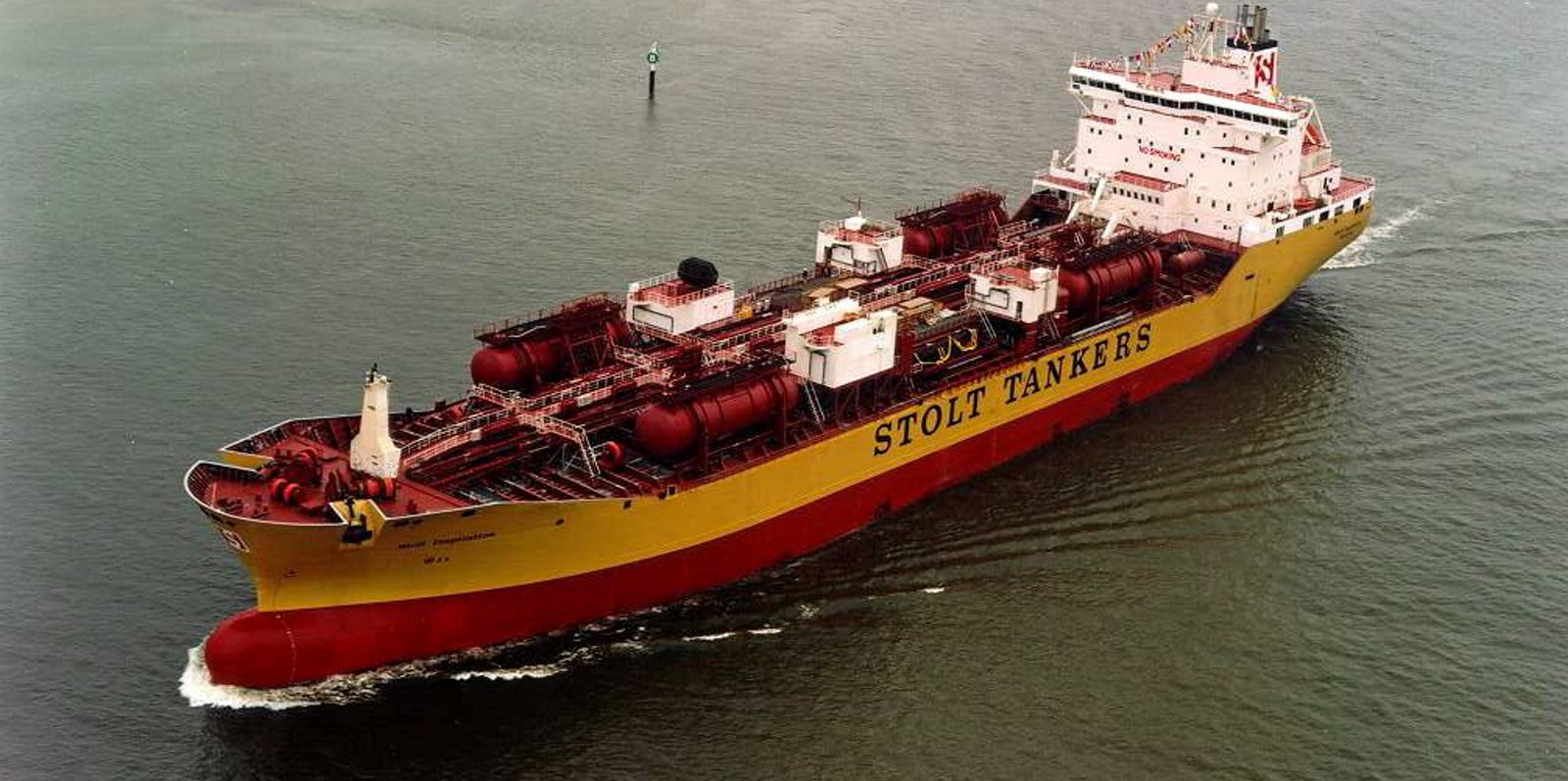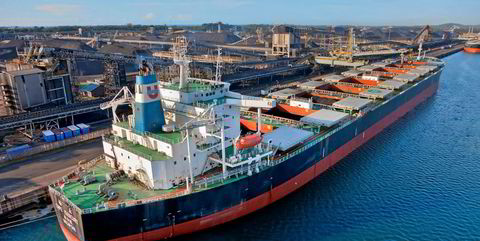Norway’s Stolt-Nielsen is heading for more big profit this year as chemical tanker markets continue to improve.
Norwegian investment bank DNB Markets is bullish on the Oslo-listed group’s earnings potential, raising its Ebitda forecast for the year by 3%.
Second-quarter profit is estimated at $158m, compared with an actual result of $160m in the first three months.
This is 10% above the analyst consensus.
DNB equity analysts Jorgen Lian, Markus Tryggvason Lanesskog and Sander Borgli said they detect signs of an upswing in the sector.
“We see an improving chemical tanker freight market on abating swing tonnage due to growing product tanker demand on disruption and trading economics,” they added.
“In our view, recent events should put the company on course for our positive outlook longer-term, as we see a record-low orderbook facilitating several profitable years for Stolt Tankers.”
DNB forecasts Stolt-Nielsen’s Ebitda rising to $179m in the third quarter, then falling to $159m in the final three months.
It has a “buy” rating on the stock, with a new target price of NOK 218 per share, up from NOK 209 previously and well above the NOK 179 traded on Tuesday.
Higher estimates for next year and 2024
DNB’s profit estimates for 2023 and 2024 have been raised by 2% in each case.
The second-quarter results are due on 30 June.
With product tanker demand up and rates rising, owners have less incentive to trade in chemicals, reducing the supply of vessels and increasing rates.
AIS data suggests clean carrier demand as of April was up 4% versus the same period in 2019.
“We remain optimistic about the near-term outlook, which we believe will help close the gap between our still-positive longer-term outlook,” the DNB analysts said.
They argue that an ageing chemical tanker fleet, new environmental requirements and a low orderbook of 7% of the existing fleet should ensure cash keeps flowing for Stolt-Nielsen’s chemical tankers.
Downside risks include a more muted rate recovery in tankers than expected, driven by weaker volumes and a slower macro recovery.






